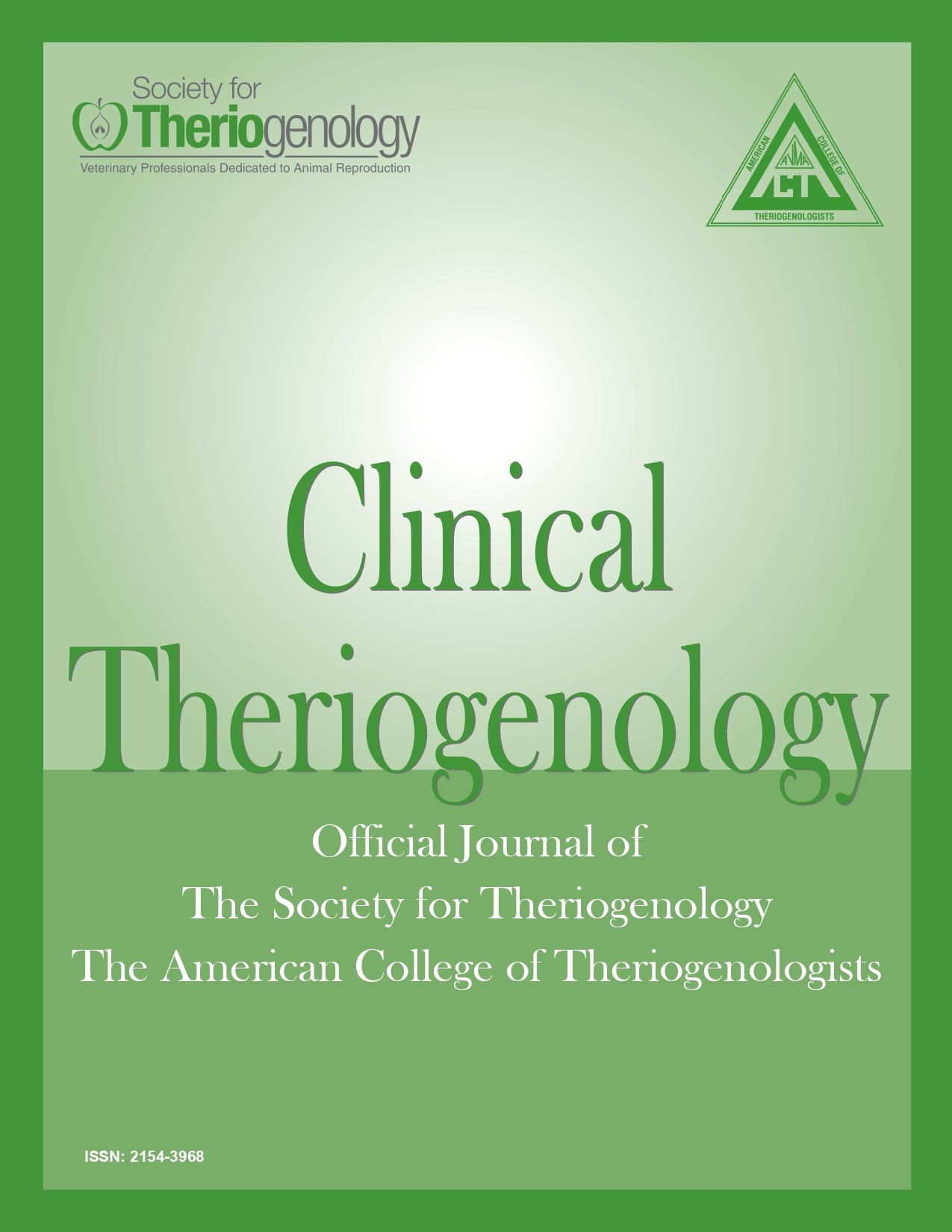Single layer density centrifugation improved semen quality in a stallion with hydrocele
Abstract
Hydrocele was diagnosed in a 21 year old stallion with a history of subfertility. Subjective progressive motility
and normal sperm from ejaculates (n = 12) were (mean ± SEM) 25 ± 11% and 24 ± 7%, respectively. From each
ejaculate,1 sample was centrifuged through a silica colloid and refrigerated for 72 hours. An uncentrifuged sample
served as control. Morphologically normal sperm was higher (p < 0.05) in semen centrifuged through the silica
colloid. Sperm motility in cool-stored semen was higher (p < 0.05) in silica colloid centrifuged semen compared to
control at 24, 48, and 72 hours postrefrigeration. Percent viable sperm and sperm with high mitochondria membrane
potential were higher (p < 0.05) at 24 hours of postrefrigeration for semen centrifuged through silica colloid. Three
mares were inseminated at alternate estrus, either with semen centrifuged through the silica colloid or with control.
Inseminations (n = 3) with uncentrifuged semen (≥ 500 x 106 motile sperm) did not result in pregnancy. However,
inseminations with fresh semen (n = 2) or 24 hours chilled semen (n = 2) obtained after centrifugation with single
layer colloid (≥ 170 x 106 motile sperm) resulted in pregnancies. We concluded that hydrocele had apparently
contributed to decreased semen quality and fertility in this stallion, and centrifugation of the ejaculate through a silica
colloid improved semen quality.
Downloads

This work is licensed under a Creative Commons Attribution-NonCommercial 4.0 International License.
Authors retain copyright of their work, with first publication rights granted to Clinical Theriogenology. Read more about copyright and licensing here.







